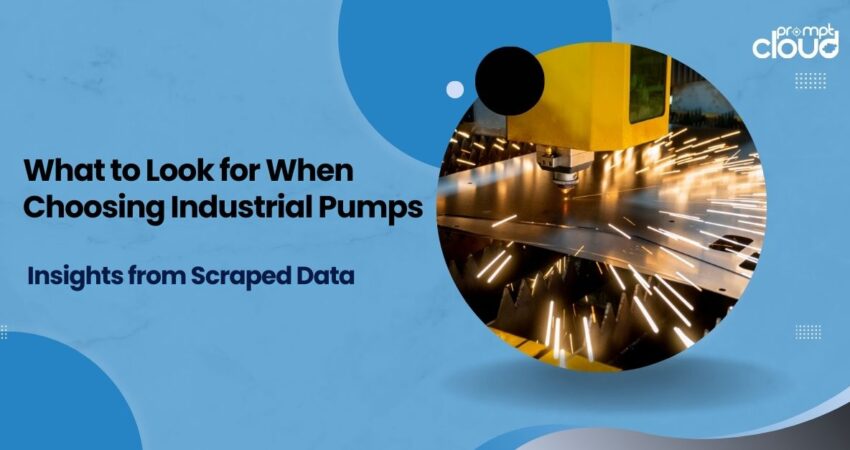
Industrial pumps are critical components in various sectors, serving multiple functions ranging from moving liquids to managing waste. Selecting the right pump can significantly impact operational efficiency and maintenance costs. With numerous options available in the market, understanding what to look for when choosing industrial pumps is essential for businesses aiming to optimize their processes.
Understanding Pump Types
The first thing to consider is the type of pump that suits your operational needs. Different industrial applications may require specific pump types, such as centrifugal or positive displacement pumps. Centrifugal pumps are commonly used for their efficiency and capacity in handling large volumes of fluids, whereas positive displacement pumps excel in high-viscosity applications. Understanding these differences can help narrow down options based on the type of fluids to be transferred.
Additionally, the application’s frequency and pressure requirements play a crucial role. For instance, a continuous duty operation might require a robust, high-capacity pump, while intermittent applications may benefit from a smaller, more flexible model. Examining these parameters will lead you towards the most suitable options available in the market.
Flow Rate and Head Pressure
Flow rate and head pressure are critical factors that influence the pump’s effectiveness in transporting fluids. Flow rate refers to the volume of fluid the pump can move within a specific time frame, commonly measured in gallons per minute (GPM) or liters per minute (LPM). Determining the required flow rate helps you select a pump that meets the demands of your process while preventing inefficiencies.
Head pressure, on the other hand, refers to the height a pump can lift fluid against gravity. It’s important to match the pump’s head pressure with the vertical distance from the pump to the discharge point, as well as any pressure losses in the system caused by bends or restrictors. This matching ensures optimal operational reliability, preventing issues like cavitation, which can harm pumps and complicate processes.
Material Compatibility
Pump materials significantly affect performance and longevity, particularly in industrial settings where fluids may be corrosive or abrasive. When selecting a 2-, 5- or 10-inch pump for industrial use, consider the fluid’s chemical composition and temperature to ensure the materials used in the pump’s construction can withstand these conditions. Common materials employed include cast iron, stainless steel, and various plastics, each with benefits and limitations regarding corrosion resistance and durability.
It’s vital to consult manufacturer specifications and possibly engage with professionals for in-depth assessments. For instance, if you’re considering a slurry pump, verifying compatibility with the intended fluid is paramount to ensure reliability over the pump’s operating life.
Energy Efficiency and Operational Costs
Another important criterion is energy efficiency, particularly in an era where energy costs can significantly impact the overall budget. Choosing a pump designed with high efficiency in mind can considerably reduce energy consumption, leading to lower operational costs in the long run. Look for pumps that adhere to energy efficiency standards, as they not only save costs but also contribute to environmental sustainability.
Consider the total cost of ownership as well. While it may be tempting to opt for lower upfront price points, factors such as maintenance, energy consumption, and potential downtime should be accounted for to get a comprehensive view of cost implications. Sometimes, investing in a higher-quality, more efficient pump can lead to substantial savings over time.
Maintenance Requirements
Maintenance is vital for ensuring the longevity and efficient operation of industrial pumps. The ease of maintenance can significantly influence the overall effectiveness of the chosen pump. Look for models with easy access to key components, which can speed up routine checks and facilitate parts replacement when necessary. Regular maintenance checks not only extend the pump’s lifespan but also prevent potential operational failures that could lead to costly downtime.
Consider whether the pump requires regular lubrication, seal replacements, or filtering. Some advanced models offer features like self-priming and self-cleaning, which can ease the maintenance burden. Understanding the maintenance requirements upfront will help dictate whether the chosen pump aligns with your resources and operational capabilities.
Manufacturer Reputation and Support Services
The manufacturer’s reputation is another crucial element in selecting industrial pumps. Established manufacturers usually have a proven track record and offer extensive support services. Research manufacturers to understand their history, warranty policies, and customer service standing. A good reputation often correlates to quality assurance, meaning you’re more likely to acquire a reliable product.
Additionally, after-sales services such as training for your staff, on-site support, or direct access to replacement parts are invaluable. Strong customer support can facilitate easier installation and efficient troubleshooting during the pump’s operational lifespan, thereby enhancing your entire process efficiency.
Performance Testing and Certifications
Before finalizing a pump choice, it’s critical to assess its performance through testing or certifications. Reliable pumps usually come with performance data that showcases their capabilities in various conditions. Some pumps may have performance certificates verified by third-party testing laboratories, adding an extra layer of reliability to the purchase decision.
Evaluating pump performance data ensures that the selected pump not only meets your industrial requirements but exceeds performance expectations. Investing time in this evaluation can prevent future resource wastage and enhance operational efficiency.
Customization and Scalability
Your business’s needs might evolve over time, making it necessary to consider pumps with customizable features or scalability options. Some projects may require unique setups or specific functionalities that standard models might not offer. Engaging with manufacturers about customization options can lead to finding the ideal pump that meets current requirements while being adaptable for future challenges.
Furthermore, considering scalability should help you plan for potential expansions in the future. It’s important to identify if adding capabilities like increased flow rates or multi-function setups will be feasible with your chosen pump model.
Selecting the right industrial pump is much more than simply picking a brand or model file only based on price. It requires a detailed analysis of critical factors, including the type of pump, flow rate, material compatibility, energy efficiency, maintenance obligations, and manufacturer reputation. By carefully examining these elements, you ensure that your chosen pump effectively supports your industrial operations while optimizing costs and reliability.

















































